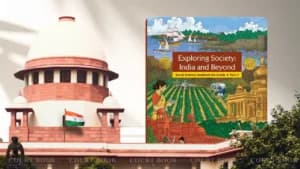The Supreme Court has delivered a significant ruling in the case of Devendra Kumar v. State (NCT of Delhi), clarifying how courts should deal with allegations of obstructing public servants in the discharge of their duties.
The case stemmed from an incident dating back to 2013, where a process server accused the then Station House Officer of Nand Nagri police station of wrongful detention and humiliation while serving court summons.
Background of the Dispute
According to the complaint, the process server was allegedly abused, forced to stand with his hands raised, and made to sit on the floor for hours before the warrants were finally accepted. A Chief Metropolitan Magistrate ordered the registration of an FIR against the police officer under Sections 186 and 341 of the Indian Penal Code. Successive appeals before the Sessions Court and Delhi High Court failed, leading to the officer’s plea before the Supreme Court.
The petitioner’s counsel argued that mere obstruction without the use of criminal force does not attract Section 186 IPC. It was also submitted that no FIR could be registered in such cases without a proper complaint under Section 195 of the Code of Criminal Procedure. The defence stressed that the Magistrate had wrongly directed a police investigation under Section 156(3) CrPC when he should have directly taken cognizance of the complaint.
Read also:- Rajasthan High Court Reinstates Constable, Stresses Mandatory Written Reasons for Dispensing Inquiry
Justice J.B. Pardiwala, delivering the judgment, observed:
"The dignity of the court was at stake. There is a lot of sanctity attached to a complaint lodged by none other than a civil judge. In such circumstances, the Magistrate ought to have taken cognizance straightaway instead of directing a police investigation."
Read also:- Delhi High Court Denies Bail to Amtek Group Promoter Arvind Dham in ₹26,000 Crore Bank Fraud Case
The Court clarified that obstruction under Section 186 IPC is not confined to physical resistance. Even threats, humiliation or any act preventing a public servant from discharging duties can constitute an offence. Importantly, the Bench highlighted that the bar under Section 195 CrPC is mandatory, and prosecutions without a proper written complaint by the concerned authority would be void.
Bench: Justices J.B. Pardiwala and R. Mahadevan
Case Title: Devendra Kumar v. The State (NCT of Delhi) & Anr.
Case Number: SLP (Criminal) No. 12373 of 2025















